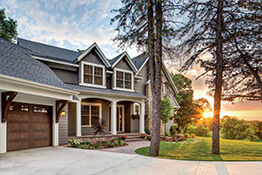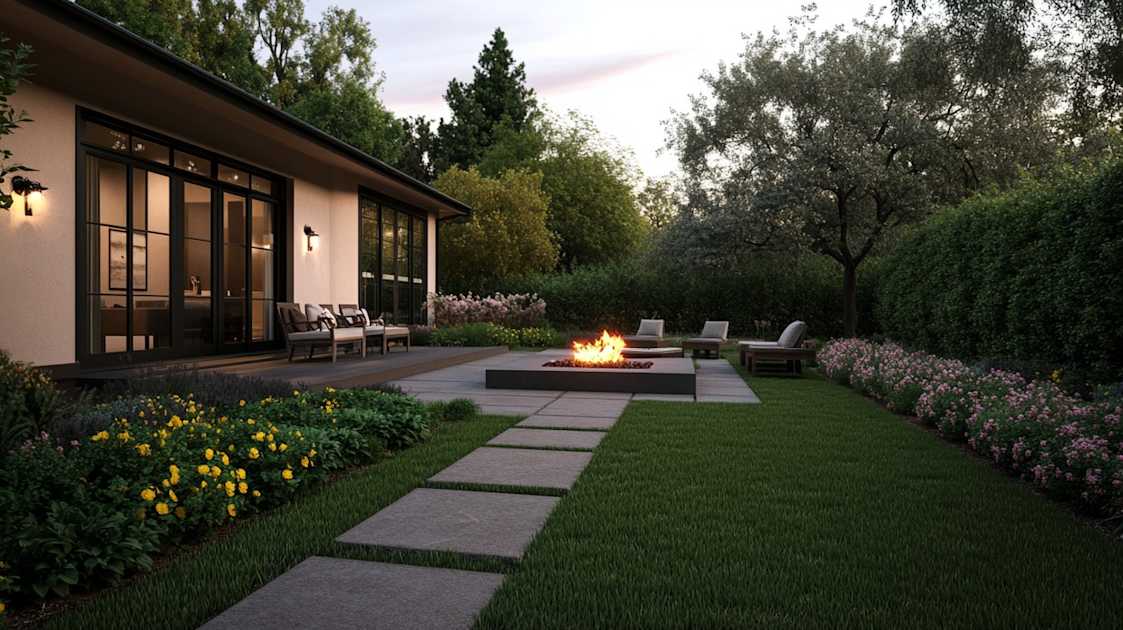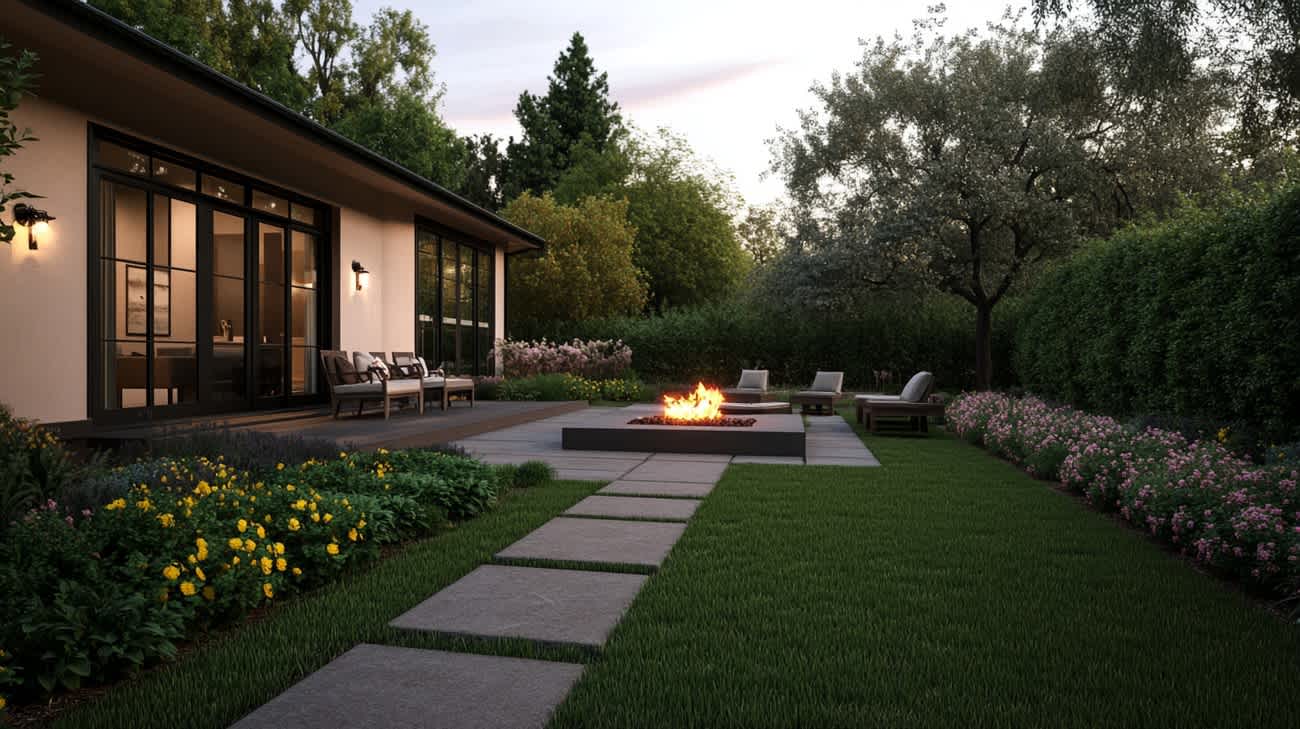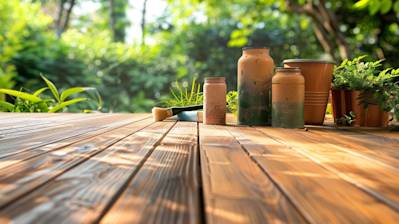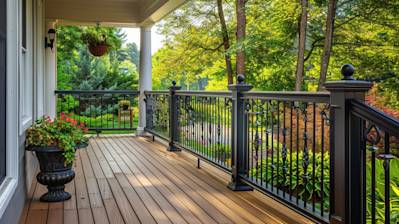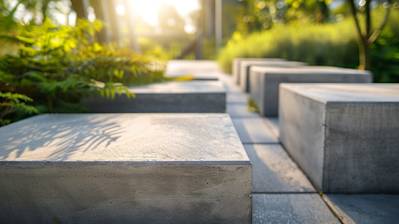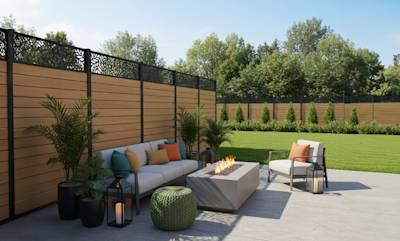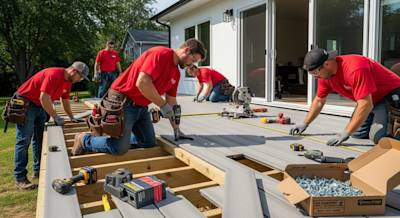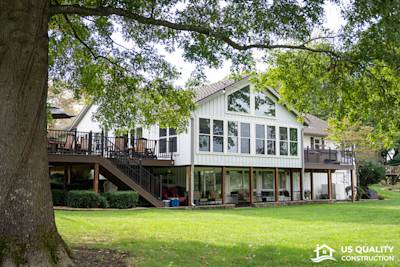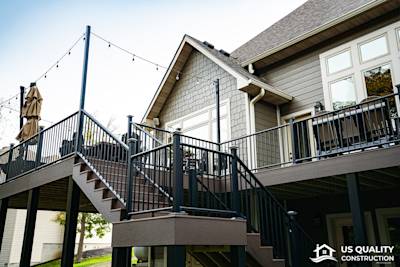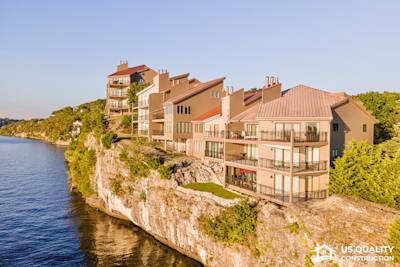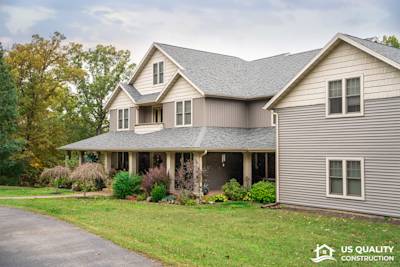Transforming your outdoor space? Patio pavers may be the perfect solution. They are an effective way to add character, flexibility and longevity to your yard. If you're considering patio pavers as a means to improve your outdoor area, read on for an in-depth guide to everything you need to know.
What are Patio Pavers?
Patio pavers are a popular landscaping tool used to create surface areas in a yard. They're durable, easy to install and available in a variety of shapes, sizes and colors. Each paver is a separate piece which makes them more resilient to cracks and damage than solid surface patios.
Types of Patio Pavers
There are numerous types of patio pavers, each carrying unique characteristics and benefits.
Concrete Pavers
Concrete pavers are highly versatile and come in just about any color, shape or size you can imagine. They are durable, relatively low cost and easy to repair if a piece becomes damaged.
Brick Pavers
Brick pavers possess a classic, timeless appeal. They offer durability and a unique aesthetic. They are typically red, but can also be found in several different colors.
Natural Stone Pavers
Natural stone pavers are incredibly sturdy and long-lasting. They deliver a natural, rugged beauty that's hard to match with any other material.
Choosing the Right Patio Pavers
Before making a decision, consider the following:
- Budget: Your budget is a significant factor. Different types of pavers come at different costs.
- Style: Consider the style of your house and matched the pavers accordingly. For instance, natural stone might go well with rustic style homes while concrete or brick pavers might pair well with classic, traditional homes.
- Durability: If your patio will see heavy foot traffic or furniture use, opt for a more durable paver like concrete or natural stone.
- Maintenance: Different pavers require different levels of maintenance. For instance, brick pavers may require regular sealing to maintain their color and prevent staining.
Installation of Patio Pavers
The installation of patio pavers can be a DIY project if you are handy, or you could hire professionals to do it for you. Here is a desirable step-by-step installation process:
- Site Preparation: The first step in the installation process involves preparing the site. This includes digging out the area where the patio will be and making sure it's level.
- Installing the Base: The next step involves installing the base material. This is typically made of crushed stone or gravel, and it provides a solid foundation for the pavers.
- Laying the Pavers: The pavers are then laid out in the desired pattern. There's an array of patterns you can use to achieve your desired look.
- Securing the Pavers: Once the pavers are in place, they should be secured with a layer of sand. This helps to keep them in place and prevent shifting.
- Finishing Touches: The final step involves installing edge restraints around the perimeter of the patio and filling in any gaps with sand.
Remember to always check local building codes and permit requirements before starting the installation process.
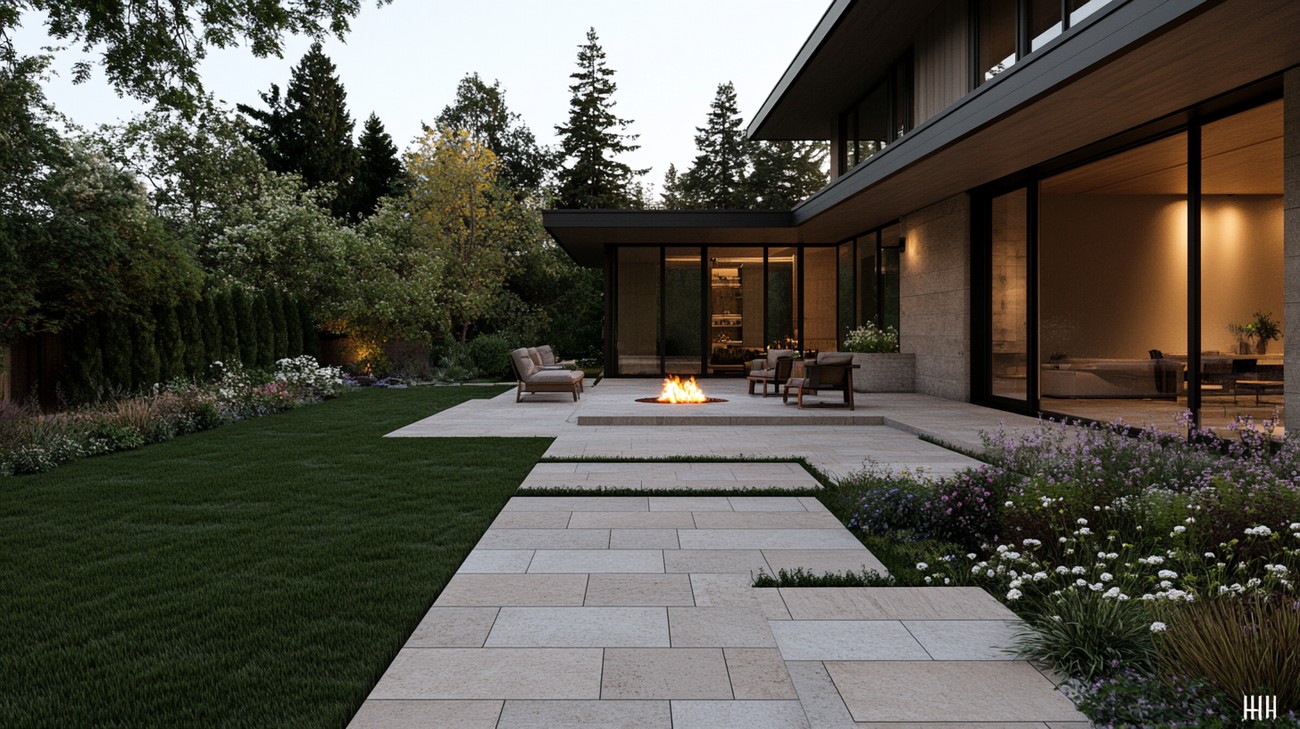
Frequently Asked Questions about Patio Pavers
What are Some Popular Materials Used to Make Patio Pavers?
There are numerous materials used to manufacture patio pavers. Some of them include concrete, clay (or brick), cobblestone, rubber, and natural stone including granite, slate, and limestone. Each material has its own unique aesthetic appeal and comes with a set of properties that make it suitable for specific environments and design preferences.
How Do I Choose the Right Material for My Patio Pavers?
Choosing the right material for your patio pavers hinges on factors like weather conditions in your region, your outdoor design, your budget, and how much maintenance you're willing to put up with. For instance, concrete pavers are versatile and cost-effective, but they may not match the aesthetic offered by natural stone pavers. Similarly, brick pavers exhibit a classic look, but they may require consistent maintenance.
How Long Can I Expect My Patio Pavers to Last?
Different types of patio pavers have varying lifespans. For instance, you can expect brick and concrete pavers to last between 25-50 years, while natural stone pavers can last for over 100 years. However, these lifespans are significantly influenced by the quality of installation and the level of maintenance carried out.
How Much Maintenance Is Required for Patio Pavers?
The level of maintenance required for patio pavers typically depends on the materials used. Concrete pavers require the least maintenance and may simply be washed with a hose. On the other hand, natural stone pavers may need to be sealed regularly against wear and tear and extreme weather conditions.
Are Patio Pavers Slip Resistant?
Yes, many patio pavers come designed with textured surfaces to increase grip and reduce the risk of slipping, particularly when wet. However, the level of slip resistance varies from one type of paver to another. So, it's always crucial to discuss your needs with the supplier before making a purchase.
What is the Process of Installing Patio Pavers?
The process of laying down patio pavers involves a series of steps. These steps include measuring and marking the area, excavating the marked area, arranging for the base material and edge restraints, laying the pavers, and finally filling the joints. This process can be complicated and we highly recommend hiring a professional for accurate and efficient installation.
Can I Replace Damaged Patio Pavers?
Yes, one of the main advantages of patio pavers is that they are individually installed, which makes them easier to replace in case of damage. This can be performed by carefully removing the damaged paver and installing a new one in its place.
Do Patio Pavers Affect the Value of My Property?
Indeed they do. A patio made from pavers not only enhances the aesthetic appeal of your property but also increases its market value. This is mainly because a well-designed patio is often seen as an attractive outdoor extension of the living area.

Pros of Patio Pavers
Variety of Designs
Shape and Size
Patio pavers offer a wide variety of shapes, sizes, and patterns. Whether you prefer a traditional, rectangle shape or something more intricate like a hexagon or octagon, there is a paver to match your aesthetic. Plus, they come in various sizes, enabling you to create designs and patterns matching your taste.
Colors and Textures
Furthermore, patio pavers range in colors from light beige to deep charcoal, providing freedom to coordinate your outdoor space with your home’s exterior. You can even find pavers replicating the texture of cobblestone, brick, or slate, enhancing the aesthetic appeal of your patio.
Durability and Strength
Patio pavers typically exhibit high durability and strength. They are designed to withstand heavy foot trade, harsh weathering conditions, and even vehicular traffic. This aspect ensures the longevity of the patio, reducing the necessity for frequent replacements.
Easy Maintenance
Cleaning
Cleaning pavers is relatively straightforward. Usually, a simple sweep with a broom or a rinse with a hose will suffice. For deeper cleans, a pressure washer or a simple soap-and-water solution can be used.
Replacement
The segmented nature of patio pavers allows for easy replacement. If a paver gets damaged or stained, you can effortlessly remove the injured paver and replace it with a new one, saving time and money.
Enhanced Property Value
Finally, a well-installed and maintained paver patio can significantly enhance the value of your property. It's an attractive feature for potential buyers, which can increase the market value of your home, providing a solid return on investment.
Cons of Patio Pavers
Installation Process
Time-Consuming
Patio paver installation can be quite time-consuming, especially for complex designs. It requires careful planning, excavating, and preparation of the ground before setting down the pavers. Plus, creating the desired pattern can add to the time investment.
Requires Professional Assistance
Though a DIY project is achievable, it may be best to engage a professional. Incorrect installation can lead to uneven surfaces, water pooling and ultimately, a less durable patio.
Cost
Initial expenses of purchasing and installing patio pavers can be considerably high. The price is influenced by the paver type (concrete, natural stone, clay), design complexity, and professional installation charges. This cost might not be feasible for everyone.
Weeds Growth
Despite proper installation, you may find weeds growing in the gaps between pavers. It may require regular weeding or the application of weed-preventing substances.
Irregular Surfaces
Over time, due to weather changes or ground movements, pavers may shift, creating an irregular, uneven surface. Although it is easier to replace individual pavers, correcting extensive irregularities may call for more intensive work.
Staining and Fading
Pavers can stain, especially lighter-colored pavers. They can absorb stains from food, beverages, leaves, and more. Also, despite most products being fade-resistant, continuous exposure to sunlight may result in some fading over time. Regular sealing can prevent this, adding to maintenance tasks.
Summary
In conclusion, while patio pavers offer an array of design possibilities, enhancing property value, and boasting durability, they might require professional installation, come at a higher cost, and require regular maintenance to prevent weed growth and staining. Therefore, when choosing your patio material, consider your budget, time, and long-term maintenance capability.

Myths/Misconceptions about Patio Pavers
Myth 1: All Patio Pavers are the Same
This is perhaps the most common misconception about pavers, but it's far from accurate. Patio pavers come in a wide variety of materials, each with its own set of advantages and disadvantages. Some commonly used paver materials include concrete, brick, and natural stone.
Concrete Pavers
These are often chosen for their versatility and affordability. They come in a variety of shapes, sizes, and colors allowing for an array of design possibilities. However, concrete pavers can fade over time due to exposure to the elements.
Brick Pavers
Brick pavers have a timeless, classic aesthetic that complements many styles of architecture. They're durable and resistant to weather. However, they offer fewer design options compared to concrete.
Natural Stone Pavers
These are the most costly but offer unrivaled elegance and durability. Pavers made of stone like slate, granite, or limestone can add a touch of natural beauty to your patio but are more expensive to install.
Myth 2: Patio Pavers are Maintenance-Free
While they certainly require less maintenance than other types of patio surfaces, patio pavers are not entirely maintenance-free. They do need consistent cleaning to maintain their look. Over time, weeds may grow between pavers which need to be removed. Sealing is also recommended every few years to protect the pavers from stains and weather damage.
Myth 3: Installing Patio Pavers is Easy DIY Project
This can be true if you have a lot of experience with DIY projects, have the right equipment, and are working with a relatively simple design. However, installing pavers requires preparation of the base, correct placement and leveling of the pavers, and proper finish and sealing. It can be a lot more complex than it seems at first glance. It's always best to consult with a professional to evaluate whether this is a job you should tackle yourself or one best left to the experts.
Myth 4: Patio Pavers are Only for Patios
Despite the name, patio pavers are not exclusively for patios. They have a myriad of applications within the landscape, from walkways and driveways to pool decks and garden pathways. In fact, their use can bring consistency and continuity to your outdoor space, tying together the different elements of your landscape with a common material or design.
Myth 5: Patio Pavers Can Easily Shift or Sink
This is only partially true, as it largely depends on the quality of the installation. If properly installed with a sufficient base preparation, drainage, and edge restraints, pavers should remain in position and not sink. However, if they were not installed properly, shifting or sinking can indeed occur over time.
Myth 6: Patio Pavers Do Not Add Value to the Home
Contrary to this myth, a well-maintained and attractive paver patio can actually increase the value of your home. Patios made from high-quality pavers offer a return on investment via greater curb appeal and the creation of additional usable outdoor space. Moreover, quality pavers will stand the test of time, remaining beautiful and functional for many years, which is a plus for prospective home buyers.
Myth 7: Patio Pavers are Expensive
While some types of pavers, such as natural stone, can be more costly, there are plenty of affordable options such as concrete or brick. Additionally, when you consider the longevity, curb appeal, and low maintenance of pavers, they can actually be a cost-effective choice in the long run.
Summary
Patio pavers are a fantastic option for any homeowner looking to upgrade their outdoor living space. They offer a wide range of benefits, including durability and easy maintenance. Plus, with the vast array of styles, colors, and materials available, you can customize your patio to match your home's aesthetic perfectly. Never underestimate the impact that well-chosen and well-placed patio pavers can have on your outdoor décor.
Paving your patio can completely change its look and feel. Choosing the right patio pavers can instantly add a touch of elegance and sophistication. Aside from their visual appeal, they are practical too. They are resistant to weather conditions, making them a practical long-term investment for your property. Remember, when laying pavers, planning and preparation are essential for a successful project!
Installing patio pavers not only improves the aesthetic value of your home, but it can also increase its resale value. Most buyers appreciate a well-maintained outdoor space, and a paved patio most certainly contributes to that impression. It's an investment that pays off in various ways - you get to enjoy an upgraded outdoor area and reap financial benefits if and when you decide to sell. Just another reason why patio pavers are a great addition to any home.
About US Quality Construction
Welcome to US Quality Construction! We're a proudly local business based out of Kansas City, MO, dedicated to delivering unparalleled construction and remodeling services throughout our beloved community. As a seasoned construction company, we bring a robust combination of expertise, professionalism, and commitment to every project we undertake. Whether your needs are residential or commercial, no project is too big or too small for us. At US Quality Construction, we're all about turning your construction dreams into reality in the most efficient, affordable, and high-quality way possible. Strap in for a construction experience you won't forget!
Tags: patio, outdoor, landscaping,
